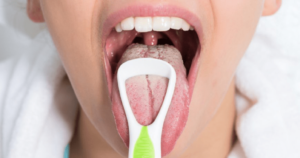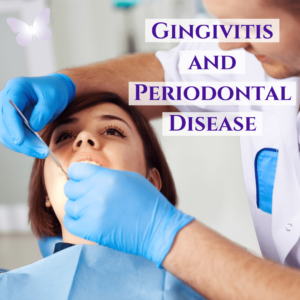No one can live in a bubble. We are exposed daily to a plethora of potentially harmful bacteria, viruses, parasites, and yeast. They are in our food, our air, water, and living on and in us. This can lead to many problems including chronic infections.
We exist in a symbiotic relationship with these natural organisms. Our human cells are outnumbered by bacteria by about ten to one! Amazingly, we aren’t constantly sick. This is because not all microbial organisms are harmful. Many are beneficial and we rely on them for optimal health. But when things become imbalanced and we have too many “bad guys,” our immune systems are not equipped to fight them off. That’s when problems arise.
Following a low-glycemic diet and avoiding sugars and foods that exacerbate symptoms can help greatly with combating chronic infections and keeping inflammation down. The anti-candida and Low-FODMAP Food Plans are also helpful in treating dysbiosis and overgrowths in the gut. Simple dietary changes can help sufferers to feel better rather quickly.
While we cannot completely avoid exposure to potentially infectious organisms, we can certainly minimize the risk of developing an infection. We can support our body’s natural ability to defend and fight off foreign invaders.
Food and Nutrition for Fighting Chronic Infections
When it comes to food and nutrition for fighting infections, often what you avoid is more important than what you eat. Overall following a low-glycemic diet and avoiding sugars and foods that exacerbate symptoms can help with combating chronic infections. This will also keep inflammation down. The Elimination Diet is also a good place to start to help you determine which foods are causing an adverse reaction in your system. After symptoms have abated, some foods can be slowly worked back into your diet.
The anti-candida and Low-FODMAP Food Plans are used to treat overgrowths and dysbiosis in the gut. These food plans specifically eliminate foods that are known to “feed” the bacteria or yeast and helps to starve them out. Many people with gastrointestinal overgrowths feel better simply following these dietary changes.

Anti-Candida Food Plan
The anti-candida food plan is used to treat yeast or candida overgrowth and may also be helpful for dysbiosis (an overgrowth of bad bacteria) or following an elimination diet. You should consider following the anti-candida food plan if you suspect or know you have a yeast overgrowth or are experiencing gastrointestinal issues such as gas, bloating, or IBS (irritable bowel syndrome) symptoms such as changes in bowels, diarrhea, or constipation.
Low-FODMAP Food Plan
The Low-FODMAP Food Plan is more specific for people dealing with gastrointestinal symptoms, IBS, diarrhea, and constipation. It limits foods high in FODMAPS, a family of poorly absorbed, short-chain carbohydrates, which are highly fermentable in the presence of gut bacteria.
If high-FODMAP foods, such as broccoli, asparagus, onions, and garlic, cause you to bloat or cause gastrointestinal symptoms, then you should be tested for small intestinal bacterial overgrowth and follow the FODMAP diet to relieve symptoms and help starve the overgrowth.
Protecting Your Microbiome from Chronic Infections
We’ve discussed the gut microbiome in several of our blogs, but did you know that each area of the body has a different microbiome? The mouth, nose, skin, colon, and vagina all have unique microbiomes, and disruption of this delicate balance can cause system-wide issues. Our exposure to the world is what helps us build our microbiomes, and in today’s world of over-sanitization, we disrupt our natural microbial ecosystem. You can read more on this and other topics on our blog page.
Here are some tips for protecting your microbiome:
- Avoid herbicides, pesticides, overuse of hand sanitizer, bleach, and “disinfecting” agents.
- Let your kids play in the dirt, let them get dirty; it builds their immune systems and helps them get sick less often.
- Ensure that you are having regular bowel movements daily. Not moving your bowels daily can lead to problems in the microbiome as waste and toxins aren’t efficiently cleared out. This creates perfect environment for dysbiotic or potentially harmful organisms to thrive. Start by making sure you are drinking enough water every day. Consuming fiber-rich foods and practicing stress management techniques that support the parasympathetics also help keep bowels moving.
- Avoid the use of too many topical/cosmetic products. Using too many chemicals on our skin leads to toxic exposure and interferes with our skin’s natural ability to take care of itself.
- Maintain good oral hygiene and have regular checkups with your dentist to check for any infections or sources of inflammation.
Finally, avoid overuse of antibiotics. This is HUGE. The overuse of antibiotics is creating an epidemic of antibiotic-resistant superbugs. Avoid antibiotics for minor colds or infections whenever possible.
Gingivitis and Periodontal Disease

One of the most common places for hidden infections is the mouth. There’s a lot of evidence that oral bacteria can lead to systemic infection. Poor oral hygiene has been connected to chronic inflammation and a whole host of chronic health conditions. Maintaining good oral hygiene can have an overall positive effect on your health and help you achieve remission.
Good Oral Hygiene Tips:
- Floss daily.
- Brush teeth two times a day for more than two minutes.
- Avoid sugary foods and drinks.
- Avoid toxic toothpaste and oral hygiene products.
- Use activated charcoal toothpaste. Activated charcoal binds to toxins and chemicals and prevents them from being absorbed in the body. It is a great detoxifier and helping to remove toxic waste from the body. It also is a great natural whitening agent for your teeth. But even more so, charcoal can help with pH balance in the mouth and support the proper balance of your oral microbiome.
- Consider using an oral probiotic to support the mouth microbiome.
Nutrient Therapy for Chronic Infections
The term infection refers to an invasion of disease-causing agents and the body’s reaction to those agents and the toxins they produce. The body is very intelligent when it comes to infections and protecting us from harm. But what happens when our immune system isn’t able to effectively do its job? The following chart outlines important herbs and natural agents that can effectively help eradicate different types of infections. This is by no means a complete list but rather guidance for those suffering from different types of infections.
Chronic Sinusitis
A chronic sinus inflammation or issues such as congestion, excess mucus production, and postnasal drip, can be traced back to an underlying infection in the sinus cavities.
The best solution is a nasal-irrigation tool, or a neti pot, to help clear out the sinuses and help fight off underlying chronic infections. Make sure to always use clean, distilled water (not tap water) and add an antimicrobial such as colloidal silver to increase effectiveness and combat infections and inflammation.
If you are new to nasal irrigation, it may seem odd or uncomfortable at first. Although, as you practice, it becomes easier and will soon be your best friend for all your sinus issues!
Good Habits to Reduce Toxins and Chemicals and Support Your Immune System
When it comes to toxicity in your life, there are many habits you can undertake to support detoxification. Because the sad truth is that toxins are coming at us in many directions, including the air we breathe, the water you drink, and even the products with which we have built our homes.
We also have to carefully navigate issues like moisture and mold, allergens and even what we put on our skin.
Create a Hypoallergenic Home
Did you know that indoor air is often up to 10x more polluted than outdoor air? How do we protect ourselves from what are often invisible sources of toxins or allergens, such as mold and dust mites?
- If you believe you may have a mold or bacteria problem in your home, do not delay, test your environment immediately. (You can purchase a home test kit or hire professionals.)
- Know this: Mold loves moisture, so control indoor humidity. Make sure bathrooms and kitchen have good circulation and leave windows open when possible.
- Minimize animal allergens. Dust, vacuum and wash bedding or linens regularly to remove pet dander. Purchase a HEPA air filter to minimize allergens in the air.
- Use a simple countertop water filter to turn tap water into bottle-quality water without the harmful microplastics. Install air filters in your air ducts and vents or use stand-alone HEPA filters throughout the house.
Healthy Regards,
Dr. Tiffany Caplan & Dr. Brent Caplan
PS: Have fun exploring the creative and flavorful recipes in Dr. Caplan’s cookbook “Friendly Recipes to Calm the Fires of Inflammation.” These delicious recipes are great support for lowering inflammation due to lupus or other autoimmune disease symptoms.



Dr Caplan, , I watched your video in the Autoimmune Supertools Summit and you said in the video you would email the food charts (foods to eat and foods to avoid). Could you send me those charts please?
Hi Jennifer, those will be available in our Facebook group found here: https://www.facebook.com/groups/autoimmunitysupportgroup